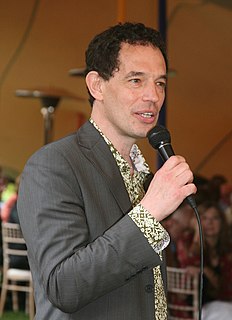A Quote by Sidney Poitier
I want my great-granddaughter to have a fairly good understanding of the world in which I lived for 81 years and also the world before I came into it - all the way back a hundred thousand years, to the beginning of our species.
Related Quotes
The planet earth has a life span of eight billion years, give or take a few million. People have been around for approximately forty thousand years-a virtual blink in the cosmos. It is sad that we as a species are ravaging the natural world so fast that we are jeopardizing our survival. If we wipe ourselves out, it would be the height of folly, but the earth will survive even us. It will eventually restore itself. It might take a few thousand years, and it won't be just as it was before, but its life is stronger than death.
For a hundred years or more the world, our world, has been dying. And not one man, in these last hundred years or so, has been crazy enough to put a bomb up the asshole of creation and set it off. The world is rotting away, dying piecemeal. But it needs the coup de grace, it needs to be blown to smithereens. Not one of us is intact, and yet we have in us all the continents and the seas between the continents and the birds of the air. We are going to put it down ? the evolution of this world which has died but which has not been buried.
We have to have a vision of the world we want to make in 100 years. And maybe when we have that vision, when we convince enough people that that is a realistic vision, and that the opposite vision is basically that if we don't do something in this 100 years, a hundred years from now this world is gonna be so destroyed, so raped and ravished that we won't HAVE much of a world to save.
The ability to double our biomass - not by waiting several million years and growing to be the size of an elephant - but waiting a few hundred thousand years for neurons to sprout into our brains - ones capable of having us create emotional relationships with other members of our species. We thereby double our biomass not by getting bigger, but by creating an ally.
In the world's history certain inventions and discoveries occurred, of peculiar value, on account of their great efficiency in facilitating all other inventions and discoveries. Of these were the art of writing and of printing - the discovery of America, and the introduction of Patent-laws. The date of the first ... is unknown; but it certainly was as much as fifteen hundred years before the Christian era; the second-printing-came in 1436, or nearly three thousand years after the first. The others followed more rapidly - the discovery of America in 1492, and the first patent laws in 1624.
Today it is not alive. What, then, is this experience of humanism? With the above survey I have tried to show you that the experience of humanism is that — as Terence expressed it — “Nothing human is alien to me”; that nothing which exists in any human being does not exist in myself. I am the criminal and I am the saint. I am the child and I am the adult. I am the man who lived a hundred thousand years ago and I am the man who, provided we don't destroy the human race, will live hundred thousand years from now.
I was always fascinated by the absurdities and luxuries and the snobbism of the world that fashion magazines showed. Of course, it’s not for everyone...But I lived in that world, not only during my years in the magazines business but for years before, because I was always of that world-- at least in my imagination.
If physics leads us today to a world view which is essentially mystical, it returns, in a way, to its beginning, 2,500 years ago... This time, however, it is not only based on intuition, but also on experiments of great precision and sophistication, and on a rigorous and consistent mathematical formalism.




































